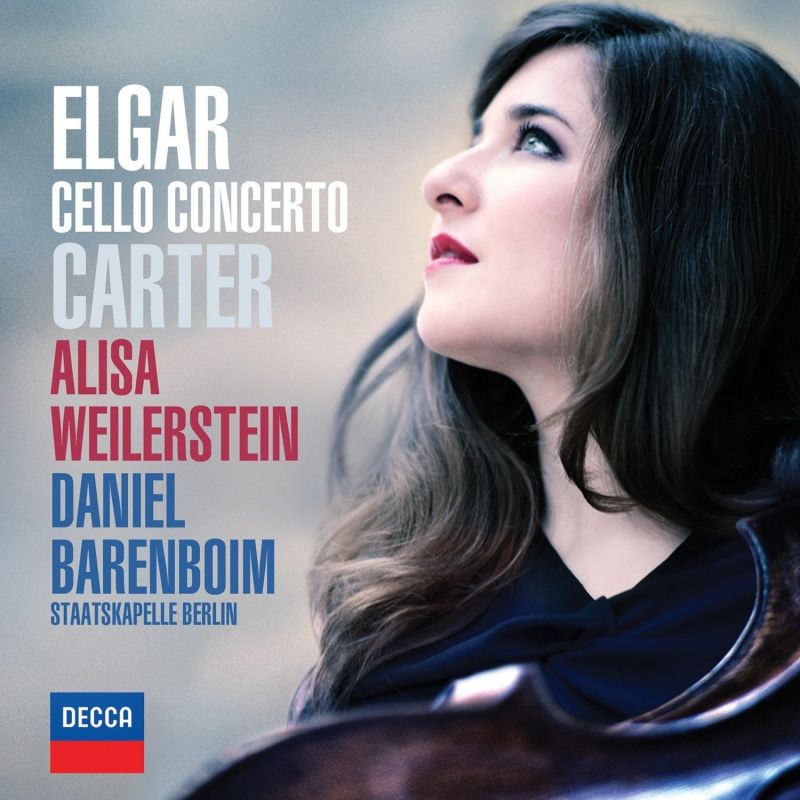ELGAR; CARTER Cello Concertos
‘The new du Pré’ takes on Elgar’s valedictory Concerto
View record and artist detailsRecord and Artist Details
Composer or Director: Max Bruch, Elliott (Cook) Carter, Edward Elgar
Genre:
Orchestral
Label: Decca
Magazine Review Date: 02/2013
Media Format: CD or Download
Media Runtime: 62
Mastering:
Stereo
DDD
Catalogue Number: 478 2735

Tracks:
| Composition | Artist Credit |
|---|---|
| Concerto for Cello and Orchestra |
Edward Elgar, Composer
Alisa Weilerstein, Musician, Cello Berlin Staatskapelle Daniel Barenboim, Conductor Edward Elgar, Composer |
| Kol Nidrei |
Max Bruch, Composer
Alisa Weilerstein, Musician, Cello Berlin Staatskapelle Daniel Barenboim, Conductor Max Bruch, Composer |
Author: Peter Dickinson
The young American cellist Alisa Weilerstein has been called the new du Pré and I can see why. Her Elgar is not as wayward as du Pré in the famous 1967 live performance with Barenboim and the Philadelphia Orchestra but it’s still remarkably impressive. Weilerstein’s first movement is more discursive than Tortelier with the LPO under Boult in 1973. The changing moods of the scherzo are perfectly caught; the Adagio is effective, with fewer portamentos than du Pré; and the last Lento in the finale makes an emotional climax.
The Carter Concerto comes from his productive final phase. The idiom is not as abrasive as his middle-period works but he still challenges the soloist. Weilerstein, who starts on her own, as in the Elgar, brings the same immaculate tonal control to bear. Carter said he aimed at ‘meaningful, personal ways of revealing the cello’s vast array of wonderful possibilities’. The soloist is mostly lyrical but the orchestra at times knocks the stuffing out of any sentimentality. The seven sections are continuous and the third one, marked giocoso, adds a touch of humour with some percussion.
The Bruch was written in Liverpool in 1881 when the composer was director of the Liverpool Philharmonic Society. Bruch was a reactionary who didn’t like Liszt and Wagner but his Kol Nidrei is a fine vehicle for Weilerstein’s gorgeous tone. Her developing band of fans will devour this CD.
Discover the world's largest classical music catalogue with Presto Music.

Gramophone Digital Club
- Digital Edition
- Digital Archive
- Reviews Database
- Full website access
From £8.75 / month
Subscribe
Gramophone Full Club
- Print Edition
- Digital Edition
- Digital Archive
- Reviews Database
- Full website access
From £11.00 / month
Subscribe
If you are a library, university or other organisation that would be interested in an institutional subscription to Gramophone please click here for further information.




